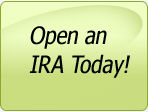|
The Advantage of Depositing Stock Certificates with
MyStockFund
Believe it or not, there are over 50 million physical/paper stock certificates
still in circulation. They reside anywhere from under the mattress to
safe-deposit boxes, rather illiquid. Sure, they look nice, but in today’s age
of electronic commerce and brokerage solutions geared towards long-term
investors, owning a physical stock certificate is inefficient and represents a
potential liability.
Inefficient
Stock certificates are inefficient because of their paper form. If you ever
needed (or wanted) to sell the stock, you must first find your certificate,
then submit it to a brokerage firm or to the company’s transfer agent in order
to liquidate it. If you do not have a brokerage account, you would need to
establish one. All this takes time - time that can affect the stock price and
underlying value of that certificate. It is simply not “negotiable” in its
current form, and can cause significant delays in selling.
You get statements and tax forms from a multitude of financial entities if you
hold multiple certificates in various companies,. This is certainly not
efficient.
Depositing your certificates in your MyStockFund account will allow you to track
all of your investments in one place, with one statement. You will receive one
tax statement. More so, if you ever decide to sell your shares, it is a
“mouse-click” away - instant, accurate and secure.
Liabilities
There are two events that occur frequently when paper becomes a liability.
First is the potential for loss, theft or destruction. Sounds funny to think
people would “lose” their stock certificates, but it happens. Thousands of
investors misplace, lose, destroy or simply throw-out by accident an
exceptionally valuable piece of paper. Did you know that it costs 2% of the
value of the stock to get that certificate replaced? 2%!! As investors, we are
happy when the markets return 8% in taxable returns per year. It seems very
costly to give up 25% of that 8% to replace a lost or stolen certificate.
The second scenario is far more serious than a lost certificate. There is
process known as “escheatment,” whereby your assets can be deemed lost -
without actually being “lost.” Sounds confusing, but here is how it works - and
how it can effect you. Let’s say you own 100 shares of a company and have a
certificate representing those shares. Over the years, you receive mailings and
annual reports from the company’s transfer agent, but never really pay much
attention to them. Then you move - and forget to notify this transfer agent of
your new address. They keep mailing to your old address and the mail keeps
coming back to them. Well - after three returned mailings, they - BY LAW - need
to consider your account “LOST.” You still have your certificate, but the
company and its agent are unable to find you. Sure - they try, but it is
usually a very superficial attempt since “detective work” is not their
expertise. Eventually, the state in which you reside or the state in which the
company is domiciled will deem your ownership “escheatable” and will lay claim
to that asset. Your certificate is still “safe and sound” in your safe-deposit
box - but it is now WORTHLESS. You can get that money back - but the time and
effort required makes it almost impossible. Fact is, of all the assets
escheated to the states each year only 2% finds it way back to the rightful
owners.
Do yourself a favor and do some research as to the escheat laws of your state.
MyStockFund Account
You already have or are about to open a MSFS account. You may deposit your
certificates without any additional fees.
You can increase the efficiency of your life and better protect your assets from
escheat by depositing those certificates in your MyStockFund account. One
statement, one place for you to track your financial portfolio, and MSFS has
electronic access to you through your email address, and procedures to follow
if you ever change your email address or move without thinking of giving MSFS
notice.
Go ahead and deposit those certificates in your MyStockFund account -err on the
safe side - prevent this sort of unnecessary headache and financial loss.
|







